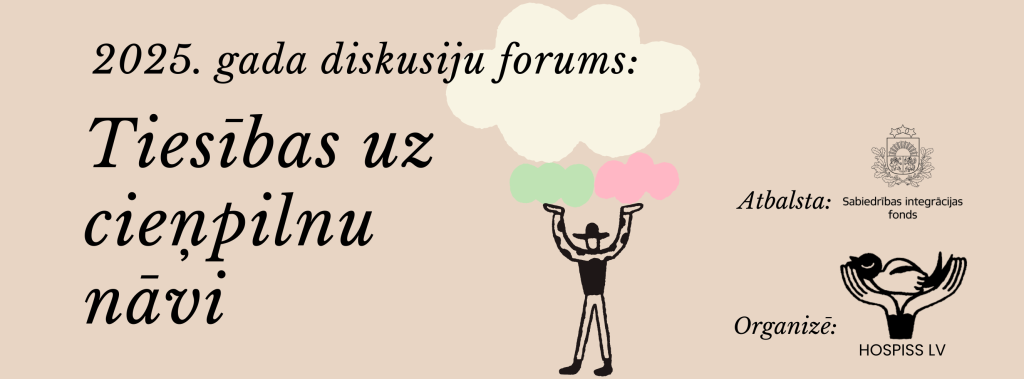The open letter was created in collaboration with the social enterprise SIA “Hospiss Māja,” which provides mobile palliative care team services at patients’ residences in Riga. The mobile palliative care team service implemented at the beginning of this year does not form an outright system. However, it is only one of the necessary elements. In our daily provision of social care, we often encounter complex situations:
- Situations where home care for patients is practically impossible (severe clinical cases, open purulent and foul-smelling wounds, as well as unsuitable living conditions). Such circumstances highlight the need for institutions where patient care can be ensured, essentially underscoring the need for hospices as stationary facilities;
- Situations where relatives of dying patients who are caring for them are psychologically and emotionally devastated because they are in a situation where they have to stay close to an incurable dying person for a long time, which prevents them from working and earning a stable living for themselves, for the care of the dying person, as well as for their family.
We propose to discuss and implement the following measures in Latvia to improve and ensure a full-fledged hospice care system:
- Establish the first state-funded hospice stationary facility in Latvia with 12 to 16 locations. Such a facility would significantly ease the work of hospital palliative care departments, as department doctors could refer patients to the hospice whose medical conditions and/or living conditions do not allow for transport or home care. This would ensure dignified care for these patients in their final days or weeks of life. The hospice would also be a solution for clients of social care institutions (nursing homes) who could find appropriate conditions at the end of life if patients contract severe incurable diseases. With the establishment of such a hospice, Latvia would no longer be the only EU country without such a stationary hospice facility;
- To maintain the ability to provide dignified care for a dying person, we ask to evaluate the possibility of including financial allowance, paid leave, or reduced working hours for people (relatives) in the regulatory acts as individuals care for a dying person at home. Additionally, we propose to include a provision that prevents dismissal from work during this time, specifying that such support is initially granted for up to 3 months but no longer than the date of the relative’s death plus four weeks. This type of benefit would be a socially fair solution for those who leave work to care for their relative. Not all employers are ready to provide unpaid leave, keep the job position, or support their employees in similar ways. The entire household often feels a significant drop in social status and income in such situations, possibly using the unemployment support system. However, in fact, the dying person usually receives unqualified care from their relative, who lacks the necessary skills and knowledge.. Most often, in such a situation, a significant drop in social status and income is immediately felt by the household, the unemployment support system may be used, but the dying person is most often receiving unskilled care from a relative who lacks the necessary skills and knowledge.
Additionally, such a benefit would prevent unacceptable practices that distort the current social service provision, where some service providers employ the relatives of a dying person as caregivers temporarily while the dying person is alive and pay them a caregiver’s salary. This practice does not align with the idea of a professional, multifunctional team providing services to several patients in an area, does not meet quality requirements, and does not ensure an objective evaluation of the service, as it creates a conflict of interest;
- To promote volunteer work, we ask to reconsider and introduce labor law’s into the regulatory acts such that there is the possibility for hospice care volunteers to receive additional paid leave days after spending a certain number of hours in volunteer work. This would be similar to the support system for blood donors,
reads the open letter, signed by the founders of HospissLV, Ilze Neimane-Nešpora, and Ilze Zosule, as well as the board member of the social enterprise “Hospiss Māja,” Žanete Jansone.
